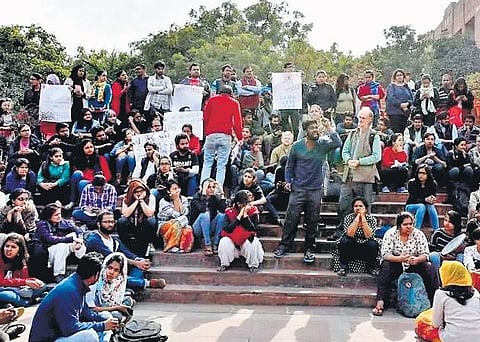

NEW DELHI: The power to express and bring someone else around to your point of view is not easy. Debating as an art or a co-curricular activity garners the interest of students for this very reason. The peculiarities involved in learning to debate are most certainly a herculean task, but the commercialization of such art discourages many enthusiasts.
Quite often, when a student gets into college, securing a place in its debating society (debsoc) tops her list, which leads to multiple screening rounds. The creme de la creme make it to them, only to end up being disillusioned by the high fee required to register for debates without any returns guaranteed.
Dhruv Jain, a DTU graduate, who has been debating and participating in MUNs (Model United Nations- a format of debate) for over 6 years now, says “The debating circuit has become highly monopolised.
Debaters pay hefty amounts to register in debates and MUNs. However, not everyone can afford to pay amounts in the range of Rs 2-3,000 for an academic stimulation of 2 to 3 days.”
“We get institutional backing in terms of resources and money from our college. A surplus amount is left from the registration amount collected from students which is utilised for our debating activities throughout the year,” he added.
However, not every college follows this process. Students in many Delhi University colleges do not get such institutional backing although they some institutions do strive for inclusivity by reducing or waiving off registration fee.
The president of the debating society of a premier DU college said, “It is disheartening to see the main motive of debating change. We recently organised a debate in our college with over 200 participants and were unhappy to notice how it all revolved around money. We could have reduced our registration fee to a nominal amount had the college administration given us financial backing. We could have accommodated underprivileged students for whom the high fee is hard on the pocket.”
For an activity that was designed to allow divergent views and an all-embracing result, it seems to favour
the privileged.